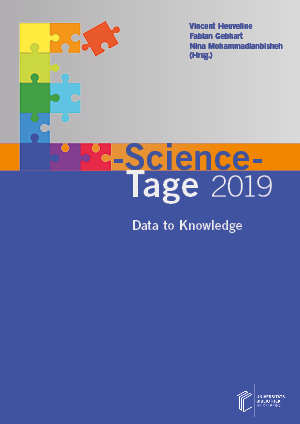How to Cite
License (Chapter)

This work is licensed under a Creative Commons Attribution-ShareAlike 4.0 International License.
Identifiers (Book)
Published
Implementierung der FAIR-Prinzipien im Forschungsdatenmanagement
Eine Terminologie-basierte Strategie für die inhaltliche Beschreibung numerischer Faktendatensätze
Abstract
Within the Open Science economy, a major challenge for the practical realisation of the FAIR principles is represented by numerical factual data. This is a result of the overwhelming big quantity of data sets, as well as of the big variety of data structures currently used in the different disciplines. This heterogeneity makes it difficult to compare data structures of different origins, as well as the establishment of unique standards for their description through metadata: for instance, DataCite metadata scheme doesn’t include any fields for the detailed description of factual data, other than the inclusion of free-text – thus not controlled – keywords. Under these conditions there are limited possibilities only to implement even the first of the FAIR principles, Findability: a guided advanced search of factual data over a plurality of repositories is currently not feasible.
We are approaching a solution to this problem via the typical characteristics of numerical factual data, which are commonly described by quantity names, units, numerical value ranges, roles (measured quantity, variable or parameter) and some estimate of the data reliability, such as the uncertainty budget and the uncertainty model. Within a newly defined "Metrology Terminology Directory"(MTD), we are developing a collection of multilingual controlled vocabularies for physical quantities, measuring units, experimental techniques and selected information about research objects; the correct designation of each item takes place in a language-independent manner via a persistent identifier. These vocabularies are then applied within an ad hoc defined metadata module for numerical factual data for a thorough description of a dataset. That way, the relevant features of numeric factual data are made accessible for complex searches and finding with suitable retrieval tools.
If the proposed metadata module is adopted and implemented by the producers of digital measuring instruments, digital sensors and software for data analysis, it will be possible in the future to implement a standardised metadata description already at the point of the first analog-to-digital conversion, and then propagate and enrich it somehow automatically along all subsequent data transformation steps. This would facilitate documentation work considerably, as well as would contribute to the realisation of all elements of the FAIR principles. Within the talk a pilot realisation of the MTD will be presented, along with selected
metadata modules.



